Konverteringsgrad i webbinarier: Din ultimata guide
Lär dig beräkna konverteringsgraden i webbinarier med vår ultimata guide. Förstå vad begreppet konverteringsgrad innebär, hur du beräknar den och maximerar utfallet av ditt nästa webinar.
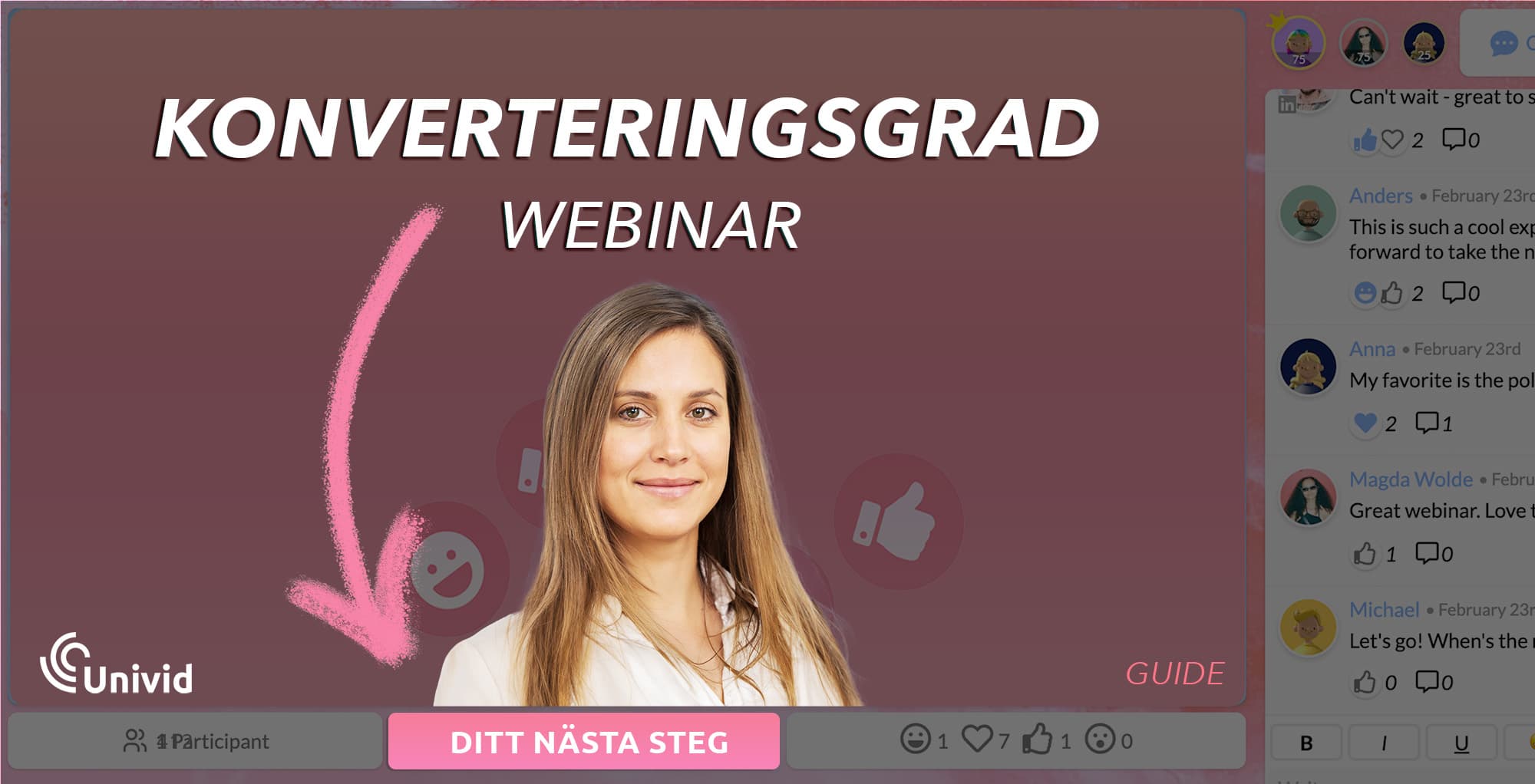
Innehåll
In the intriguing world of webinars and digital marketing, a key term that marketers, webinar hosts, or SaaS companies must become familiar with is the "conversion rate". It’s not just about hosting webinars - it's about leveraging them to achieve identifiable, meaningful results; in other words, conversions.
What is conversion rate?
A conversion rate is the percentage of individuals who take a desired next step after attending your webinar. Such actions can vary widely depending on your specific goals. They can range from signing up for a free trial, making a purchase, subscribing to a newsletter, or even just downloading an eBook or guide.
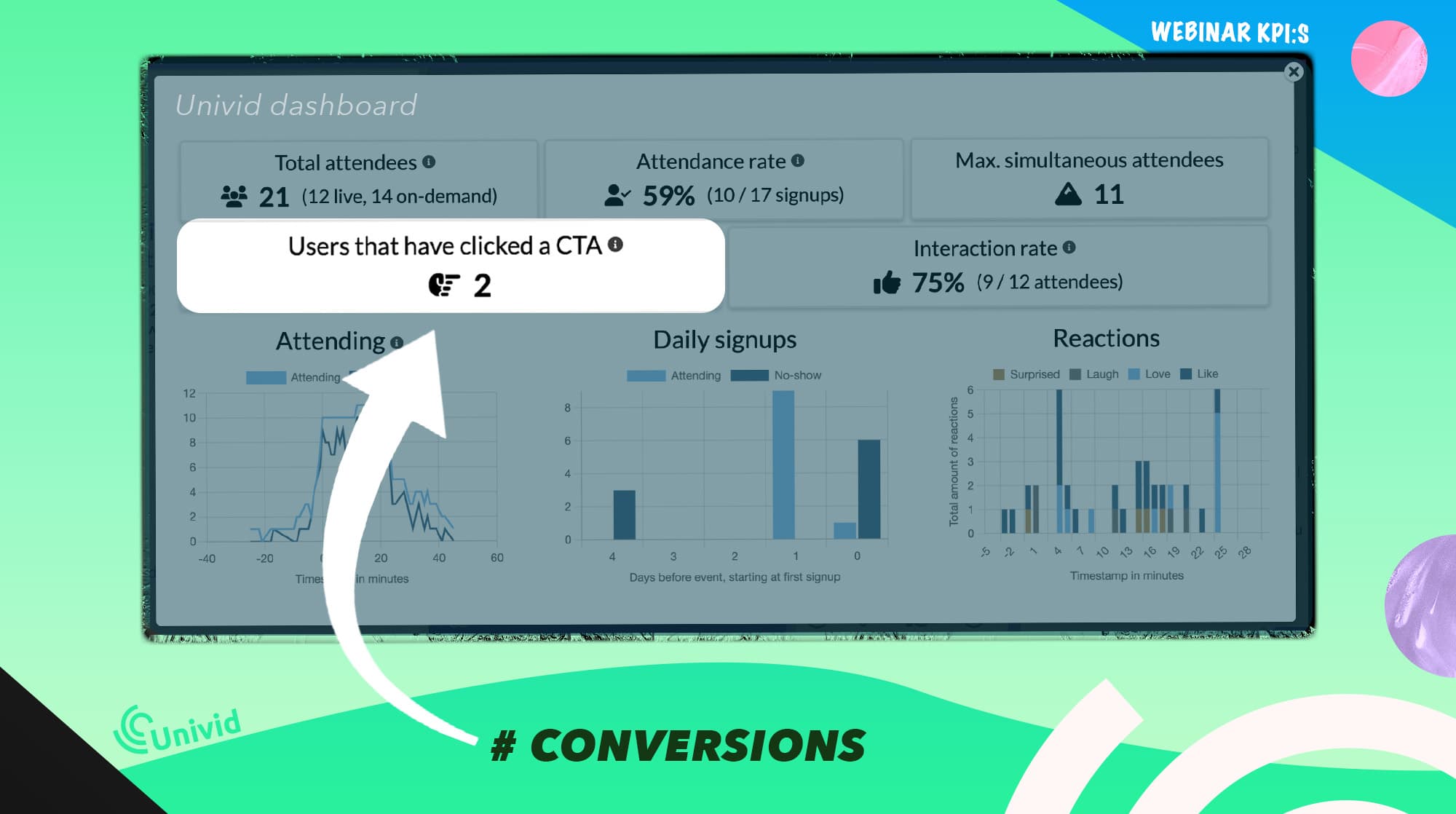
The conversion rate will obviously vary, depending on your desired next step - or call-to-action (CTA), as well as the type of audience you have.

How to calculate webinar conversion rate?
To determine your webinar conversion rate, you would simply divide the number of clicks on the CTA button, by the total number of webinar attendees. That would give you the CTA conversion rate of your webinar.

How to calculate CTA conversion rate for webinars
What is a good conversion rate?
A really good conversion rate for webinars is somewhere around 25%. A decent one is around 10%. This means every 1 in 10 attendees click your CTA-button and take the desired next step - for example signing up for a 1-on-1 demo, downloading an e-book, or booking a meeting.
The average webinar conversion rate is 22% (Source: Univid Webinar Insights).
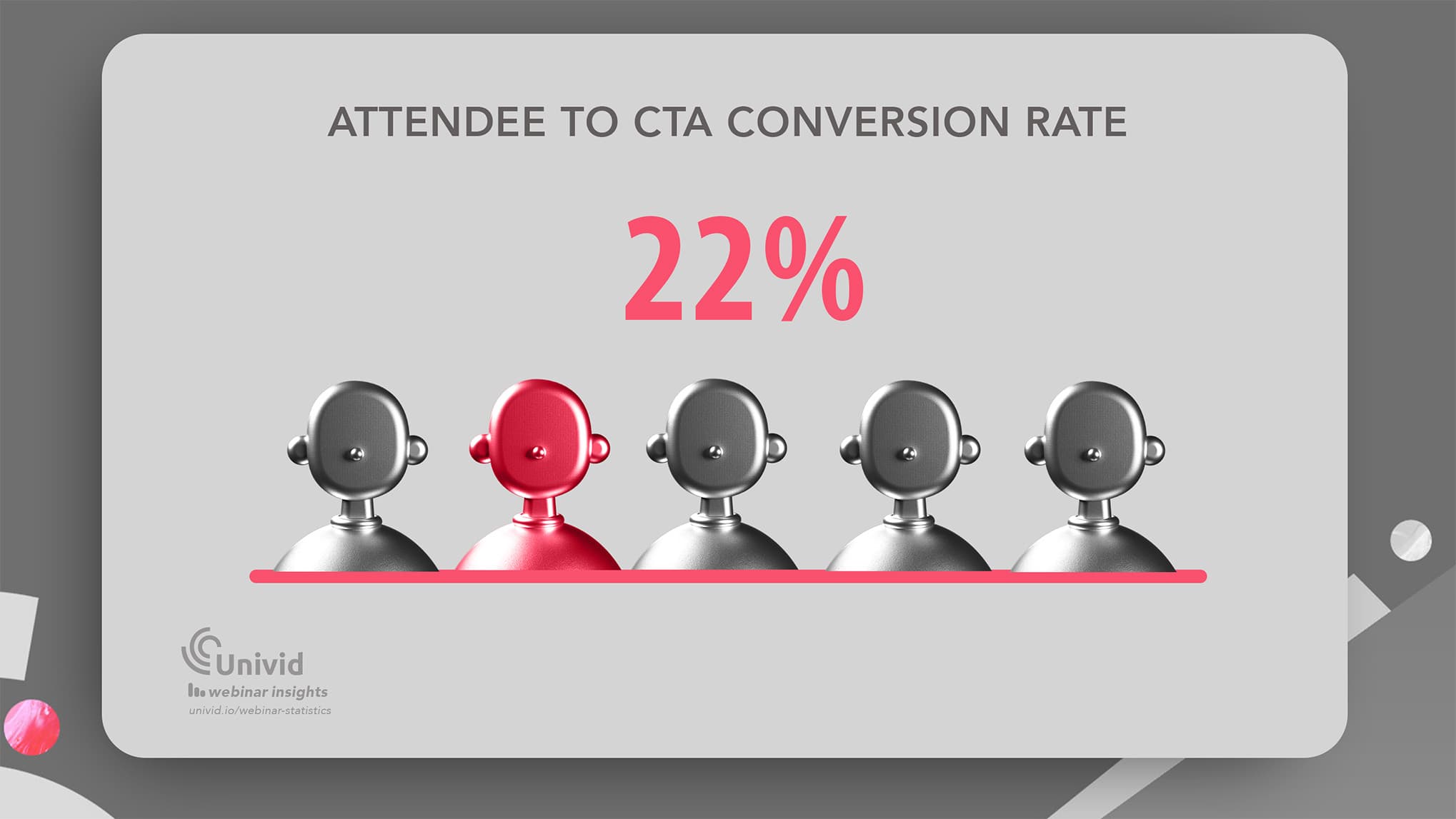
Why is the conversion rate important?
Conversion rate is seldom just a number. It’s a crucial measure of your webinar effectiveness, a core KPI of whether your attendees found your webinar valuable and whether they're likely to engage further with your brand.
By tracking this metric, you can identify strengths and weaknesses in both your webinar content and format, and optimize accordingly for better performance.
Measuring your webinar success
High conversion rates typically shows that you are offering valuable webinar content that captivate your attendees and inspire them to engage with your brand, meeting your objectives.

It can also be indicative of accurate webinar marketing from the get go, meaning you got the right attendees in the webinar in the first place.
This completion action is what separates a regular webinar from a highly successful one.
How do you convert an attendee?
Typically, you use a CTA (call-to-action) in the form of a button during the webinar.
This button let's you specify a link and text, where the attendees can click to take the specified action. Then you can typically measure clearly who converted - visible both in the webinar software, and in your integrated CRM.
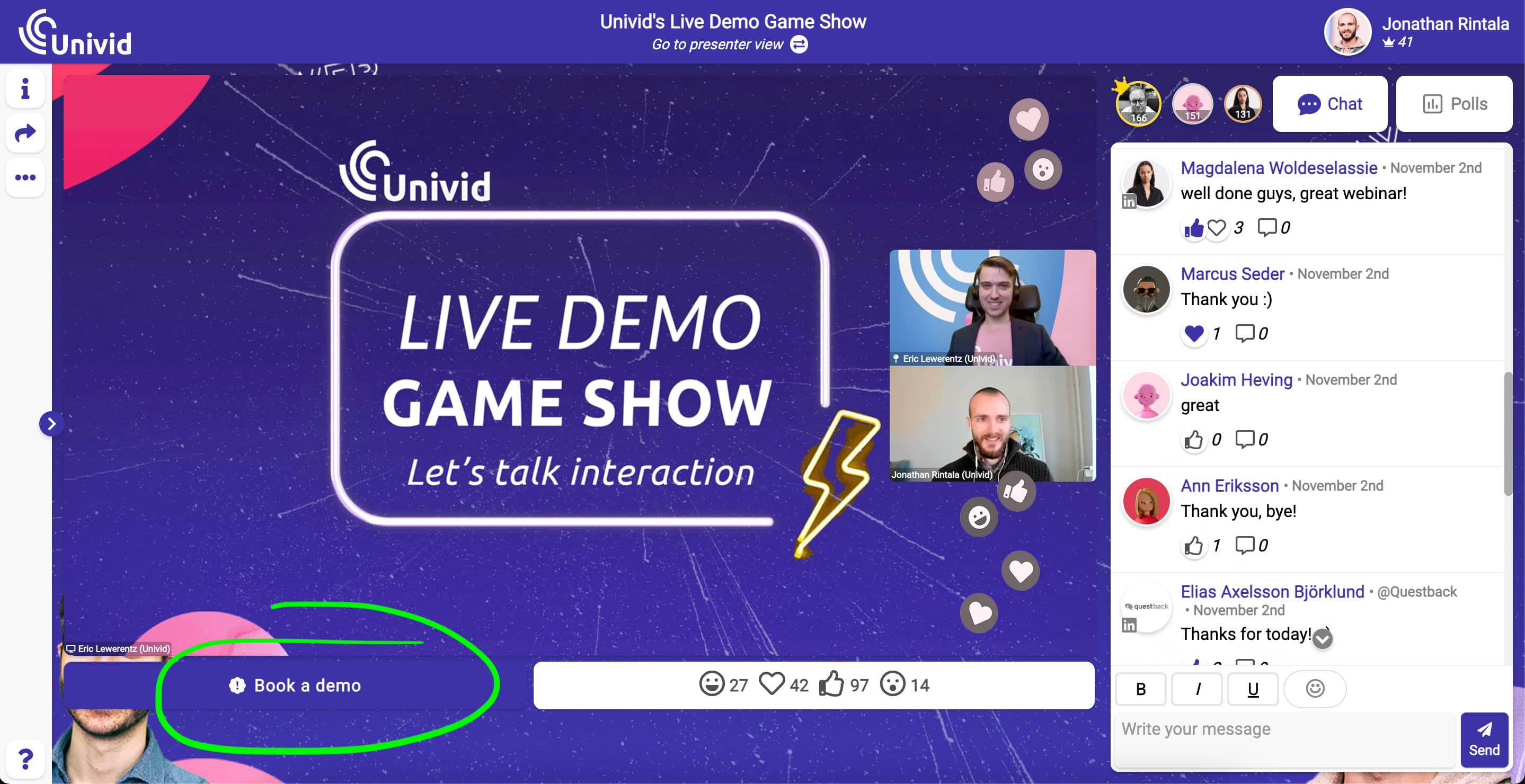
You can also convert attendees after the webinar - by sending a relevant follow-up email, with a suggested next step.
Learn how to draft the best CTA:s to boost your webinar conversions here (with examples to copy).
In conclusion
The conversion rate is a critical KPI in evaluating the success of your webinars. In your aim to create the perfect webinar, always remember the importance of your conversion rate as it could be the difference between hosting webinars just because - and hosting webinars that drive real business results.
Want high conversions? Use the right webinar tool
Understanding these terms and leveraging them in your daily operations could lead to the kind of success you envision for your SaaS company.
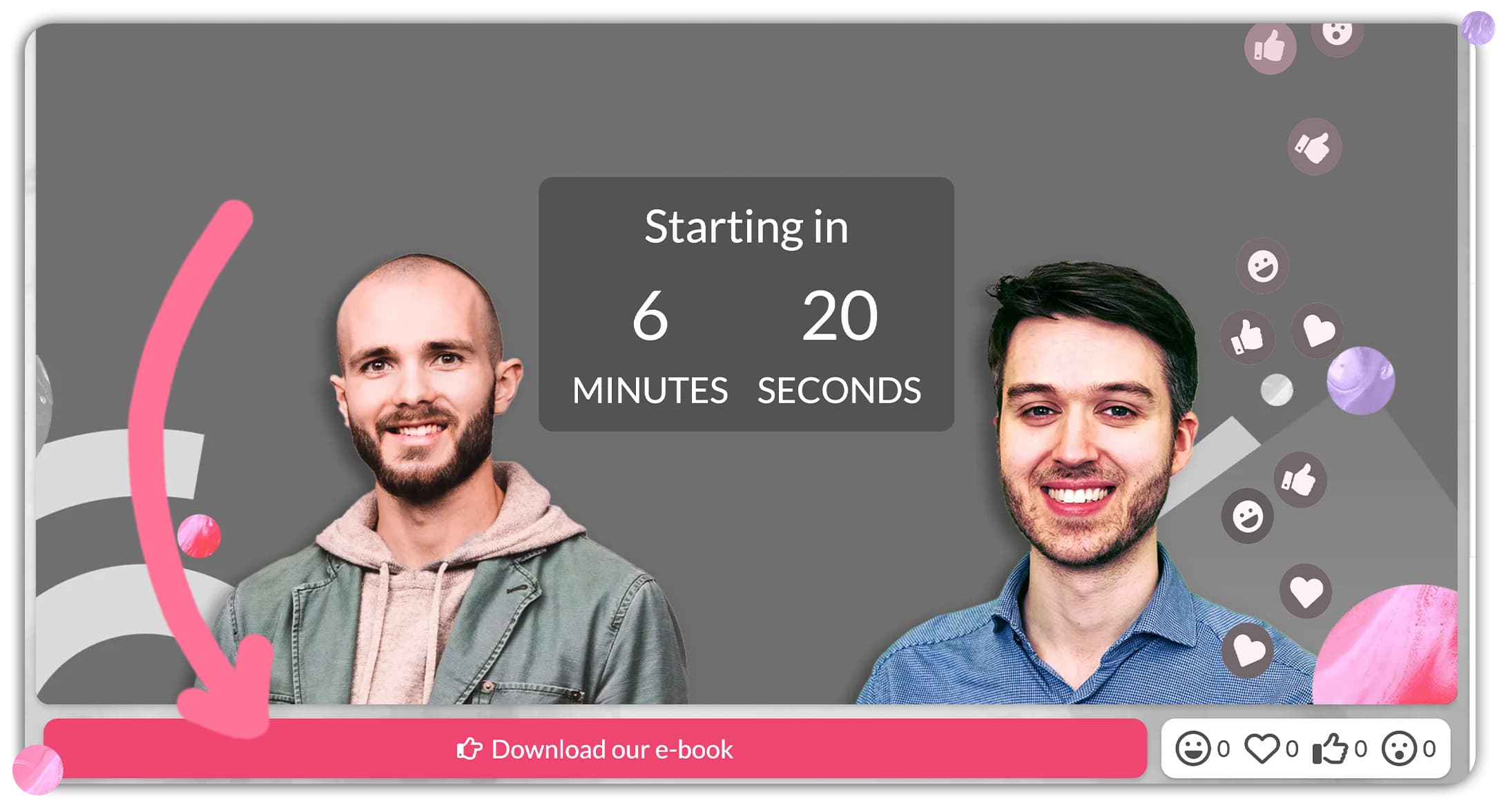
Make sure you choose a webinar tool that allows you to launch smooth CTA:s, engage the audience and trigger follow-up emails. If that sounds like something for you - we suggest you check out Univid - a top rated webinar software built for marketers that want to host webinars that convert. You can try it for free below.
Kom igång idagGör som över 70.000 användare och skapa engagerande webbinarier med Univid.Visa mig en demo
